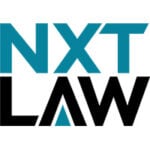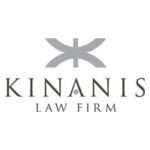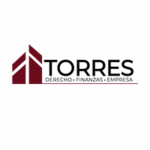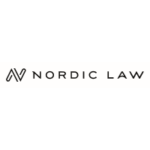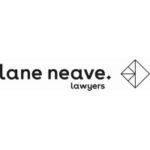-
Please provide a high-level overview of the blockchain market in your jurisdiction. In what business or public sectors are you seeing blockchain or other distributed ledger technologies being adopted?
The blockchain market in Singapore is known for its dynamic growth and multifaceted applications across various sectors. Financial services continue to lead the way in blockchain innovation, with prominent banks such as DBS and OCBC at the forefront, having launched cryptocurrency trading platforms and digital asset management services. This sector’s growth is bolstered by governmental support, as evidenced by the Monetary Authority of Singapore’s (MAS) initiatives like Project Ubin and Project Dunbar. These projects explored blockchain’s potential for improving interbank payments, settlement processes, and cross-border transactions.
Beyond finance, blockchain technology is making significant inroads into other sectors. In supply chain management, blockchain enhances traceability and operational efficiency, enabling more transparent and efficient logistics. The healthcare sector has also started exploring blockchain’s capacity to bolster data security and streamline patient records management. In real estate, blockchain is being used to facilitate overseas property transactions and investments as well as verify ownership, improving the transparency and security of the processes. Moreover, in the shipping industry, blockchains can be used to secure transactions, make the tracking of assets more transparent and help monitor the flow of real-time data.
The government’s commitment to blockchain innovation is further demonstrated through the Smart Nation initiative, which aims to integrate blockchain into public services to enhance transparency and efficiency. Additionally, the Singapore Blockchain Innovation Programme (SBIP) supports and promotes blockchain projects and research, reflecting a broader strategy to strengthen Singapore’s blockchain ecosystem and foster technological advancements.
-
Please outline the principal legislation and the regulators most relevant to the use of blockchain technologies in your jurisdiction. In particular, is there any blockchain-specific legislation or are there any blockchain-specific regulatory frameworks in your jurisdiction, either now or envisaged in the short or mid-term?
In Singapore, the regulation of blockchain technologies and digital assets is primarily governed by the Securities and Futures Act (SFA), the Payment Services Act (PSA), and the Financial Services and Markets Act (FSMA). These laws are overseen by the Monetary Authority of Singapore (MAS), which is the principal regulator for financial markets and digital assets.
- Securities and Futures Act (SFA): The SFA regulates securities and futures contracts, including certain digital tokens that may be classified as capital markets products, such as securities. This legislation ensures that digital tokens meeting the definition of securities are subject to the same regulatory requirements as traditional securities.
- Payment Services Act (PSA): The PSA addresses various payment services, encompassing digital payment token services. It provides a framework for the regulation of payment systems and electronic money, which includes certain types of digital tokens and cryptocurrencies.
- Financial Services and Markets Act (FSMA): The FSMA offers a broader regulatory framework for financial services, covering a range of financial activities, including those involving digital assets. Among other things, the FSMA applies more robust regulations on anti-money laundering and counter financing of terrorism to digital token service providers. MAS has also finalised the licensing and conduct framework for Digital Token Service Providers (DTSPs) under the FSMA. From 30 June 2025, any person carrying on a business of providing “digital token services” in or from Singapore must be licensed or exempt, with no further transitional relief. MAS has clarified scope (what is and is not a DT service) and confirmed that Singapore-based DTSPs serving only overseas customers must suspend or cease such services unless duly licensed.
While Singapore does not have specific blockchain legislation, the MAS has issued various guidelines and advisories to regulate blockchain-related activities under these existing frameworks. The regulatory environment is evolving, with ongoing discussions about potential updates and new regulations to address emerging applications of blockchain technology. After a public consultation, MAS has confirmed its intention to implement a regulatory framework for single-currency stablecoins, taking a further step in developing the regulation of digital tokens. The key features include reserve backing requirements, redemption guarantees and disclosure and audit obligations.
-
What is the current attitude of the government and of regulators to the use of blockchain technology in your jurisdiction?
The Singaporean government and regulators hold a forward-looking and supportive view towards blockchain technology, recognizing its transformative potential across various sectors such as finance, supply chain management, and public services. This progressive stance is evident through a range of key initiatives and regulatory strategies designed to foster innovation while ensuring regulatory compliance.
Singapore’s commitment to blockchain is demonstrated by its active support for innovation and adoption through various government programs. The Smart Nation initiative highlights the government’s dedication to leveraging blockchain to enhance public services, aiming to boost transparency, efficiency, and inclusivity in governance and public administration.
In terms of regulation, the Monetary Authority of Singapore (MAS) adopts a balanced approach that encourages technological innovation while enforcing financial regulations and mitigating risks. MAS has issued guidelines, consultation papers and notices to clarify expectations, including technology risk management guidelines and prohibitions on credit facilities and staking for retail users under PDS guidelines. MAS engages with industry stakeholders through consultations, pilot projects, and sandbox experiments to tackle the challenges and opportunities presented by blockchain technology. This engagement helps to shape a regulatory environment that supports blockchain advancements while maintaining financial stability and integrity.
Several key initiatives underscore Singapore’s commitment to blockchain innovation. Project Guardian, launched by MAS in May 2022, is an industry-led effort to explore asset tokenization and decentralised finance (DeFi). This project involves collaboration between MAS, major financial institutions, fintech companies, and industry participants, with goals to assess blockchain’s impact on financial stability and to advance tokenised assets and DeFi solutions. The initiative aims to improve the efficiency and inclusivity of financial markets while managing associated risks.
Additionally, MAS has led Project Ubin and Project Dunbar, two pioneering projects that explore blockchain’s applications in interbank payments, settlements, and cross-border transactions. Project Ubin focused on the use of blockchain for digital currencies and payment systems within Singapore, whereas Project Dunbar targeted cross-border payments and settlements in collaboration with other countries. The current Ubin+ project builds on Project Ubin and Project Dunbar to enable Singapore to better utilise digital currencies for transactions across borders.
To support the developments of blockchain technology, MAS continuously refines its regulatory framework to clarify the application of existing laws to blockchain activities and explore new measures to address emerging trends.
MAS has also been focusing on operational rollout. Amendments to the PSA/Regulations introduced statutory trust segregation of customer assets, daily reconciliation, record-keeping and operational safeguards for DPT service providers.; and the FSMA DTSP regime is now operational, reflecting MAS’s “innovate, but with clear guardrails” stance and its intolerance for unlicensed cross-border offshoring.
-
Is there a central bank digital currency (‘CBDC’) project in your jurisdiction? If so, what is the status of the project?
Singapore has been actively exploring the concept of central bank digital currency (CBDC) through its Project Ubin. Initiated by the Monetary Authority of Singapore (MAS), Project Ubin is a multi-year, multi-phase project designed to investigate the use of blockchain and Distributed Ledger Technology (DLT) for the clearing and settlement of payments and securities.
Project Phases:
- Phase 1: Tokenized Interbank Payments (2016-2017): The project began with a proof-of-concept focusing on tokenised SGD for inter-bank payments using blockchain technology. This phase involved a consortium of financial institutions, including Bank of America Merrill Lynch, Credit Suisse, DBS Bank, HSBC, JP Morgan, Mitsubishi UFJ Financial Group, OCBC, and others, along with technology partner R3. The phase concluded with a report detailing the prototype’s design principles and the applicability of DLT for settlement systems.
- Phase 2: Decentralised Netting of Payments (2017): The focus shifted to developing decentralised inter-bank payment and settlement systems with liquidity savings mechanisms. This phase saw collaboration with additional financial institutions and technology partners like Accenture, IBM, ConsenSys, and Microsoft. A report and open-source code were released to encourage further experimentation and innovation.
- Phase 3: Delivery-vs-Payment (DvP) for Securities Settlement (2018): This phase aimed at developing Delivery versus Payment (DvP) capabilities for the settlement of tokenised assets across different blockchain platforms. Partners included Anquan, Deloitte, and Nasdaq. The phase successfully demonstrated that DvP settlement finality and interoperability could be achieved with blockchain technology.
- Phase 4: Cross Border Payments with Project Jasper (2018-2019): MAS, the Bank of Canada (BoC), and the Bank of England (BoE) jointly explored cross-border payments and settlements. They successfully linked Project Jasper (Canada) and Project Ubin, culminating in a joint report on enhancing cross-border transactions using CBDCs.
- Phase 5: Industry Integration & Production Viability (2020): The final phase, conducted in collaboration with Temasek, developed a multi-currency payments network prototype. This phase extended the work from Phase 4, providing insights into blockchain-based multi-currency payments and exploring business applications and ecosystem opportunities. The findings emphasised the benefits of integrating blockchain technology into commercial applications.
With Project Ubin now having concluded its phases, providing valuable insights into the potential benefits and technical challenges of CBDCs and blockchain integration. It sets the foundation for subsequent initiatives like Ubin+, which continues to explore cross-border connectivity with other central banks.
Moreover, the Singapore government has launched Project Orchid, a multi-year, multi-phase exploratory project examining the various design and technical aspects critical to digital Singapore dollar. The objectives of this project are to develop the technology infrastructure and technical competencies necessary for digital Singapore dollar, as well as to explore potential use cases for programmable money in Singapore.
Project Phases:
- Phase 1: Purpose Bound Money (PBM): This phase aims to build upon the concept and capabilities of programmable payment and programmable money. PBM refers to a protocol that specifies the conditions upon which an underlying digital currency can be used. PBMs are bearer instruments, with self-contained programming logic and transferable between two parties without intermediaries.
- Phase 2: Orchid Industry Group and Orchid Blueprint: The industry group formed in Phase 2 expanded the use of PBM in new scenarios with a focus in commercial application in Singapore’s financial landscape. MAS, together with the industry group, published the Orchid Blueprint, which aims to develop the core infrastructure components and learnings from the various industry pilots and engagements.
-
What is the current approach in your jurisdiction to the treatment of cryptoassets and decentralised finance (‘DeFi’) for the purposes of financial regulation?
In Singapore, the regulatory landscape for cryptoassets and decentralised finance (DeFi) is primarily governed by the Securities and Futures Act (SFA) and the Payment Services Act (PSA). The Monetary Authority of Singapore (MAS) oversees the administration of these laws to ensure that both cryptoassets and DeFi activities comply with existing financial regulations.
Under the SFA, digital tokens may be classified as capital markets products if they meet specific criteria, such as representing shares, debentures, or collective investment schemes. Regulated activities in relation to such tokens would be subject to the provisions of the SFA, which include licensing, rigorous disclosure requirements, and other measures designed to protect investors.
The PSA regulates digital payment token services, encompassing cryptocurrency exchanges, wallet providers, and other related services. Providers in this space must obtain the requisite licences and adhere to anti-money laundering (AML) and countering the financing of terrorism (CFT) requirements. This regulatory framework is designed to mitigate risks associated with financial crimes and ensure that operational standards are robust and secure.
For DeFi, while the technology itself is not specifically regulated, the activities and entities involved may fall within the ambit of the traditional financial regulations. This would trigger the application of certain requirements meant to promote financial stability, consumer protection, and market integrity. The MAS remains actively engaged with industry stakeholders to provide clarity on how these regulations apply to new technologies and innovations in the financial sector. As the landscape continues to evolve, the MAS is also exploring potential updates to regulatory frameworks to address emerging risks and seize new opportunities.
MAS has introduced stricter conduct requirements such as licensing even for overseas-facing wallets, DeFi front-ends and exchanges based in Singapore, where failure to comply could lead to hefty fines and judicial punishment.
-
What is the current approach in your jurisdiction to the treatment of cryptoassets and DeFi for the purposes of anti-money laundering and sanctions?
In Singapore, the framework for anti-money laundering (AML) and sanctions compliance is robust, governed by the Securities and Futures Act (SFA), the Payment Services Act (PSA), and the Financial Services and Markets Act (FSMA). MAS has issued Notices and Guidelines under such statutes that comprehensively address the AML and CFT obligations of regulated entities. The Monetary Authority of Singapore (MAS) plays a pivotal role in overseeing and enforcing these measures, ensuring that entities operating in the crypto and decentralised finance (DeFi) sectors adhere to rigorous AML and countering the financing of terrorism (CFT) requirements.
MAS mandates through its regulatory regime that entities involved in digital payment token services, such as cryptocurrency exchanges and wallet providers, must comply with AML and CFT regulations. This involves implementing comprehensive measures including customer due diligence (CDD), transaction monitoring, and the reporting of suspicious activities. Entities are required to verify the identities of their customers, maintain transaction records, and conduct ongoing monitoring to detect and prevent suspicious transactions, thereby preventing misuse for money laundering or terrorism financing.
As part of the AML and CFT obligations, entities must also comply with sanctions regulations. This involves ensuring that transactions do not involve individuals or entities subject to international sanctions or restrictive measures.
MAS actively engages with industry stakeholders to stay informed about developments in the crypto and DeFi sectors. The authority updates its AML/CFT requirements as necessary to address emerging risks and regulatory challenges.
These obligations have been reinforced by the commencement of the FSMA licensing regime for Digital Token Service Providers on 30 June 2025, which extends AML/CFT requirements to all Singapore-based businesses providing digital token services, even if serving only overseas clients. In addition, MAS refreshed its Notice PSN02 in 2024 to align AML/CFT standards across both the PSA and FSMA, clarifying expectations on customer due diligence, screening, and suspicious transaction reporting for DPT service providers.
A further example of a measure MAS taken to combat money laundering is the release of COSMIC, which stands for “Collaborative Sharing of Money Laundering/Terrorism Financing Information & Cases”. COSMIC acts as a shared surveillance network enabling ongoing information exchange on suspicious behaviour, including illicit finance and sanctions risks, so as to combat money laundering in Singapore.
-
What is the current approach in your jurisdiction to the treatment of cryptoassets and DeFi for the purposes of taxation?
In Singapore, the taxation of crypto assets and decentralised finance (DeFi) activities is structured according to established tax laws, with specific guidance issued by the Inland Revenue Authority of Singapore (IRAS). The approach reflects the country’s methodical adaptation to the evolving landscape of digital assets.
Cryptocurrencies are treated as property rather than legal tender for tax purposes. This classification impacts the tax treatment of transactions and holdings. Businesses involved in cryptocurrency trading or other crypto-related activities are subject to income tax on their profits. This encompasses trading gains, mining income, and other earnings derived from crypto operations. Conversely, long-term capital gains from holding cryptocurrencies are generally not taxed, although distinguishing between trading and investment activities is essential for determining tax liabilities.
As of 1 January 2020, the Goods and Services Tax (GST) on digital payment tokens was abolished, exempting the supply of these tokens from GST. Prior to this change, transactions involving cryptocurrencies were subject to GST based on the value of the goods or services provided.
For DeFi activities, the tax treatment depends on the specific nature of each activity. Income derived from activities such as lending or staking crypto assets is typically treated as taxable income. The IRAS has issued guidance on various DeFi operations, including yield farming and liquidity provision, to ensure proper tax reporting and compliance. Entities and individuals engaged in these decentralised financial activities must adhere to IRAS guidelines to accurately report and settle taxes on any income or gains obtained from DeFi operations.
As at 26 November 2024, Singapore has signed the Multilateral Competent Authority Agreement on Automatic Exchange of Information pursuant to the Crypto-Asset Reporting Framework (“CARF”). The CARF provides for the automatic exchange of tax relevant information on crypto-assets, developed to address the rapid development of the crypto-asset market and to ensure that recent gains in global tax transparency will not be gradually eroded. This agreement is now expected to commence exchanges under the CARF in 2028, following confirmation by the Inland Revenue Authority of Singapore in June 2025.
-
Are there any prohibitions on the use or trading of cryptoassets in your jurisdiction? If permitted, is cryptoasset trading common?
In Singapore, the use and trading of crypto assets are permitted subject to the applicable licensing requirements. The sector operates within a robust regulatory framework overseen by the Monetary Authority of Singapore (MAS). Cryptocurrency trading is actively regulated to ensure a safe and secure financial environment.
The MAS regulates digital payment token services under the Payment Services Act (PSA) as well as the Financial Services and Markets Act (FSMA), which mandates stringent compliance requirements for regulated entities involved in the activity of dealing in cryptocurrency that constitutes digital payment tokens. This includes licensing and rigorous anti-money laundering (AML) and countering the financing of terrorism (CFT) measures to mitigate risks associated with digital assets. Businesses that engage in cryptocurrency activities, such as exchanges and wallet providers, are required to obtain licensing from the MAS. From 30 June 2025, this expressly includes Singapore-based providers serving only overseas customers. This licensing process aims to integrate crypto assets responsibly into the broader financial system while maintaining high standards of security and compliance.
The market activity in Singapore reflects a dynamic and growing sector. Cryptocurrency trading is widespread, with a diverse range of exchanges and trading platforms facilitating the buying, selling, and trading of digital assets. The active participation of both institutional and retail investors highlights the robust presence of cryptocurrencies in Singapore’s financial ecosystem. The cryptocurrency market has experienced significant growth, with increased involvement from financial institutions, fintech companies, and individual investors. This growth underscores the successful integration of cryptoassets into Singapore’s financial landscape, driven by a supportive regulatory environment and vibrant market activity. However, MAS has introduced additional safeguards for retail investors, including restrictions on credit purchases, leverage, and access to staking or lending services.
-
To what extent have initial coin offerings (‘ICOs’) taken place in your jurisdiction and what has been the attitude of relevant authorities to ICOs? If permissible, what are the key requirements that an entity would need to comply with when launching an ICO?
In Singapore, initial coin offerings (ICOs) have played a prominent role in the blockchain and cryptocurrency landscape, with numerous projects utilizing this fundraising method to attract capital, especially in the early years of the blockchain and crypto industry. The approach towards ICOs by the Monetary Authority of Singapore (MAS) reflects a balance between fostering innovation and ensuring investor protection. While ICOs are not prohibited, the MAS has established a cautious yet supportive regulatory framework to manage the risks associated with this fundraising method.
The MAS does not impose a blanket ban on ICOs but requires that such offerings comply with existing financial regulations. Specifically, the regulatory focus is on ensuring that ICOs do not involve the issuance of securities or other financial products regulated under the Securities and Futures Act (SFA), or e-money or digital payment tokens regulated under the Payment Services Act (PSA) unless they meet the relevant legal criteria. This requires issuers to carefully assess whether their business model falls within the definitions of the respective regulated activities under the SFA and PSA.
Notably, MAS has indicated that it will grant DTSP licences only in very limited cases, and many entities will need to restructure or cease portions of their operations if they cannot satisfy the high compliance, jurisdictional and oversight requirements.
In addition to regulatory compliance concerning securities laws, entities conducting ICOs must adhere to stringent anti-money laundering (AML) and countering the financing of terrorism (CFT) requirements. This includes implementing comprehensive due diligence measures and monitoring transactions to prevent illicit activities. The MAS has issued detailed guidelines outlining these AML/CFT obligations, ensuring that ICO issuers maintain robust systems to mitigate risks.
The MAS has issued various notices and guidelines to clarify the regulatory expectations for digital token offerings, emphasizing the importance of compliance with financial regulations to safeguard market integrity and protect investors.
Overall, while ICOs are an accepted and active part of Singapore’s financial ecosystem, the regulatory environment ensures that entities engaging in such activities do so within a framework designed to promote transparency, compliance, and investor protection. Other types of digital token offerings, such as Security Token Offerings, and Initial Exchange Offerings, have gained more popularity in more recent times.
-
Are there any legal or regulatory issues concerning the transfer of title to or the granting of security over cryptoassets?
The legal and regulatory landscape concerning the transfer of title to and the granting of security over crypto assets in Singapore is evolving. While crypto assets are generally recognised as property, their legal status and the implications for title transfer and security interests are still developing.
In Singapore, recent judicial decisions in the past few years, such as CLM v CLN [2022] SGHC 46 and ByBit Fintech Ltd v Ho Kai Xin and others [2023] SGHC 199 , have provided important insights into the treatment of cryptocurrencies as property and the enforcement of rights related to digital assets. These cases have clarified aspects of how cryptoassets are treated in the context of property law and legal disputes.
Order 22 of the Rules of Court 2021 has included “cryptocurrency or other digital currency” within “movable property”, facilitating enforcement mechanisms such as asset seizures and security perfection.
Given the evolving nature of this area of law, stakeholders are advised to seek legal counsel to navigate the complexities involved. Legal professionals can provide guidance on the current legal interpretations and assist in structuring transactions and agreements to address potential issues related to the transfer of title and the creation of security interests in cryptoassets.
-
How are smart contracts characterised within your legal framework? Are there any enforceability issues specific to the operation of smart contracts which do not arise in the case of traditional legal contracts?
In Singapore, smart contracts should generally be subject to regular contract law, although they are self-executing based on its code rather than the law. In any case, to be enforceable under the law, they must adhere to fundamental requirements such as offer and acceptance, consideration, and legal capacity, similar to traditional contracts.
However, smart contracts present unique challenges not typically encountered with traditional contracts. One key issue is ensuring that the contract code accurately reflects the parties’ intentions. Any errors or ambiguities in the code could affect its enforceability, potentially leading to disputes that would not arise with traditional written contracts.
Moreover, the self-executing nature of smart contracts introduces additional complexities. Automated execution of contractual terms can lead to unforeseen consequences or technical issues, particularly in cases involving algorithmic trading. This highlights the need for rigorous testing and validation of the contract code to prevent such problems.
Legal practitioners in Singapore should remain vigilant about the evolving legal landscape surrounding smart contracts. As technology and its applications advance, regulatory and legal interpretations may change, impacting how smart contracts are treated and enforced.
-
How are Decentralised Autonomous Organisations (‘DAOs’) treated in your jurisdiction?
In Singapore, Decentralised Autonomous Organisations (DAOs) are not currently recognised as distinct legal entities, which introduces significant uncertainty regarding their legal status and the allocation of legal responsibilities. Without formal recognition, it is challenging to assign clear legal rights and obligations to a DAO or its participants. In practice, a DAO could be considered analogous to a general partnership or joint venture agreement between its participants. In such cases, courts may infer and impose a traditional structure on a DAO based on its specific features.
DAOs typically operate with extensive internal rules governing member interactions, but these rules may lack applicability when dealing with external legal systems. Jurisdictional issues further complicate matters, as the geographic location of a DAO and its members can be difficult to ascertain. For example, DAOs may be established by contributors from various jurisdictions, with operations conducted through servers located in yet more jurisdictions, complicating the determination of applicable legal frameworks.
DAO tokens, which represent initial contributions from investors, do not equate to traditional shares or ownership stakes due to the lack of a recognised legal entity. However, where DAOs collect investment and generate returns, they may fall within the definitions of a collective investment scheme under the Securities and Futures Act, triggering licensing requirements. Furthermore, the decentralised and often anonymous nature of DAOs, where participants’ votes and actions are not easily attributable, poses additional challenges in establishing legal ownership and responsibilities within the framework of existing legal contracts.
-
Have there been any governmental or regulatory enforcement actions concerning blockchain in your jurisdiction?
In Singapore, the government and regulatory bodies have actively pursued enforcement actions related to blockchain technology. The Monetary Authority of Singapore (MAS) has been at the forefront of these actions, focusing on ensuring that blockchain activities comply with financial regulations and safeguard consumer interests.
Noteworthy enforcement actions include legal proceedings against individuals engaged in fraudulent cryptocurrency investment schemes. For instance, there have been cases where individuals faced charges for misleading investors and conducting unregulated investment activities. Additionally, MAS has taken regulatory measures against entities found to be carrying out regulated activities without the necessary licenses. This action reflects MAS’s commitment to maintaining a secure and compliant financial environment.
From 30 June 2025, the DTSP licensing regime under the FSMA formally commenced, requiring all Singapore-based crypto firms serving overseas clients to obtain a licence or cease such activities.
MAS’s proactive stance also involves ongoing supervision and regulation of blockchain activities to address emerging risks and ensure that market participants adhere to established financial standards. This approach underscores Singapore’s dedication to fostering innovation in blockchain while maintaining robust regulatory oversight to protect consumers and the integrity of the financial system.
-
Are there any other generally-applicable laws, case law or regulations that may present issues for the use of blockchain technology (such as privacy and data protection law or insolvency law)?
In Singapore, several generally applicable laws and regulations can pose challenges for the use of blockchain technology. These include privacy and data protection laws, as well as insolvency law, each of which has specific implications for blockchain applications.
The Personal Data Protection Act (PDPA) is a primary concern for blockchain technology. The PDPA governs the collection, use, and disclosure of personal data. The Personal Data Protection Commission has issued formal guidance on the design of blockchain systems, recommending avoiding personal data on permissionless ledgers, enforcing off-chain storage, obtaining consent and implementing correction mechanisms. Blockchain applications that process personal data must ensure compliance with these regulations, which can be challenging given the immutable and transparent nature of blockchain. Ensuring that personal data is handled in accordance with the PDPA’s requirements, including obtaining consent and adhering to data protection requirements, is crucial for maintaining regulatory compliance.
Insolvency law also presents potential issues for blockchain technology.. In the pivotal case of Aaron Loh Cheng Lee and Others v Hodlnaut [2023] SGHC 323, the High Court clarified that liabilities owed in cryptocurrency qualify as debts, enabling winding-up orders based on crypto liabilities. Insolvency practitioners must navigate the unique characteristics of these assets, including their transferability and the potential for smart contracts to impact the distribution of assets.
Legal practitioners advising on blockchain-related matters must consider these laws and regulations to ensure that blockchain applications and transactions comply with Singapore’s legal framework. Addressing these issues proactively can help mitigate risks and ensure that blockchain technology is used in a manner consistent with legal and regulatory requirements.
-
Are there any other key issues concerning blockchain technology in your jurisdiction that legal practitioners should be aware of?
In Singapore, several key issues concerning blockchain technology warrant attention from legal practitioners.
Evolving Regulatory Landscape: The regulatory framework for blockchain and digital assets in Singapore is continuously evolving. Legal practitioners need to stay informed about the latest regulatory updates and guidelines issued by the Monetary Authority of Singapore (MAS) and other relevant authorities. This includes keeping abreast of changes to existing regulations, new regulatory initiatives, and emerging trends that may impact the legal treatment of blockchain technology. As of 30 June 2025, the Financial Services and Markets Act (FSMA) comes into effect for Digital Token Service Providers (DTSPs), requiring all crypto firms serving overseas clients to be licensed, with no transitional relief.
Complexity of Technology: Blockchain technology and its applications are complex and multifaceted. Legal practitioners must possess or seek specialised expertise to navigate the technical and legal intricacies of blockchain projects. This includes understanding how blockchain technology intersects with various legal fields, such as financial regulation, data protection, and intellectual property. MAS’s recent DTSP guidelines also impose strict technology risk-management requirements, raising the standard for tech architecture.
Compliance and Risk Management: Ensuring compliance with applicable laws and regulations is crucial for mitigating risks associated with blockchain technology. This involves not only adhering to regulatory requirements but also addressing potential legal and operational risks, such as those related to smart contracts, digital asset custody, and cross-border transactions. Notably, MAS’ enhanced user-protection standards now require asset segregation in statutory trusts, daily reconciliation, and strong custody controls.
Market Developments and Innovation: As the blockchain and digital asset market continues to innovate, legal practitioners should be aware of new developments, such as advancements in decentralised finance (DeFi) and non-fungible tokens (NFTs). Understanding these innovations and their legal implications is essential for providing accurate and up-to-date legal advice. MAS has also reinforced its technology-neutral stance on NFTs- they are unregulated unless they exhibit the characteristics of capital markets products.
By staying informed about these key issues and acquiring the necessary expertise, legal practitioners can effectively address the challenges and opportunities presented by blockchain technology in Singapore.
Singapore: Blockchain & Crypto Assets
This country-specific Q&A provides an overview of Blockchain & Crypto Assets laws and regulations applicable in Singapore.
-
Please provide a high-level overview of the blockchain market in your jurisdiction. In what business or public sectors are you seeing blockchain or other distributed ledger technologies being adopted?
-
Please outline the principal legislation and the regulators most relevant to the use of blockchain technologies in your jurisdiction. In particular, is there any blockchain-specific legislation or are there any blockchain-specific regulatory frameworks in your jurisdiction, either now or envisaged in the short or mid-term?
-
What is the current attitude of the government and of regulators to the use of blockchain technology in your jurisdiction?
-
Is there a central bank digital currency (‘CBDC’) project in your jurisdiction? If so, what is the status of the project?
-
What is the current approach in your jurisdiction to the treatment of cryptoassets and decentralised finance (‘DeFi’) for the purposes of financial regulation?
-
What is the current approach in your jurisdiction to the treatment of cryptoassets and DeFi for the purposes of anti-money laundering and sanctions?
-
What is the current approach in your jurisdiction to the treatment of cryptoassets and DeFi for the purposes of taxation?
-
Are there any prohibitions on the use or trading of cryptoassets in your jurisdiction? If permitted, is cryptoasset trading common?
-
To what extent have initial coin offerings (‘ICOs’) taken place in your jurisdiction and what has been the attitude of relevant authorities to ICOs? If permissible, what are the key requirements that an entity would need to comply with when launching an ICO?
-
Are there any legal or regulatory issues concerning the transfer of title to or the granting of security over cryptoassets?
-
How are smart contracts characterised within your legal framework? Are there any enforceability issues specific to the operation of smart contracts which do not arise in the case of traditional legal contracts?
-
How are Decentralised Autonomous Organisations (‘DAOs’) treated in your jurisdiction?
-
Have there been any governmental or regulatory enforcement actions concerning blockchain in your jurisdiction?
-
Are there any other generally-applicable laws, case law or regulations that may present issues for the use of blockchain technology (such as privacy and data protection law or insolvency law)?
-
Are there any other key issues concerning blockchain technology in your jurisdiction that legal practitioners should be aware of?

